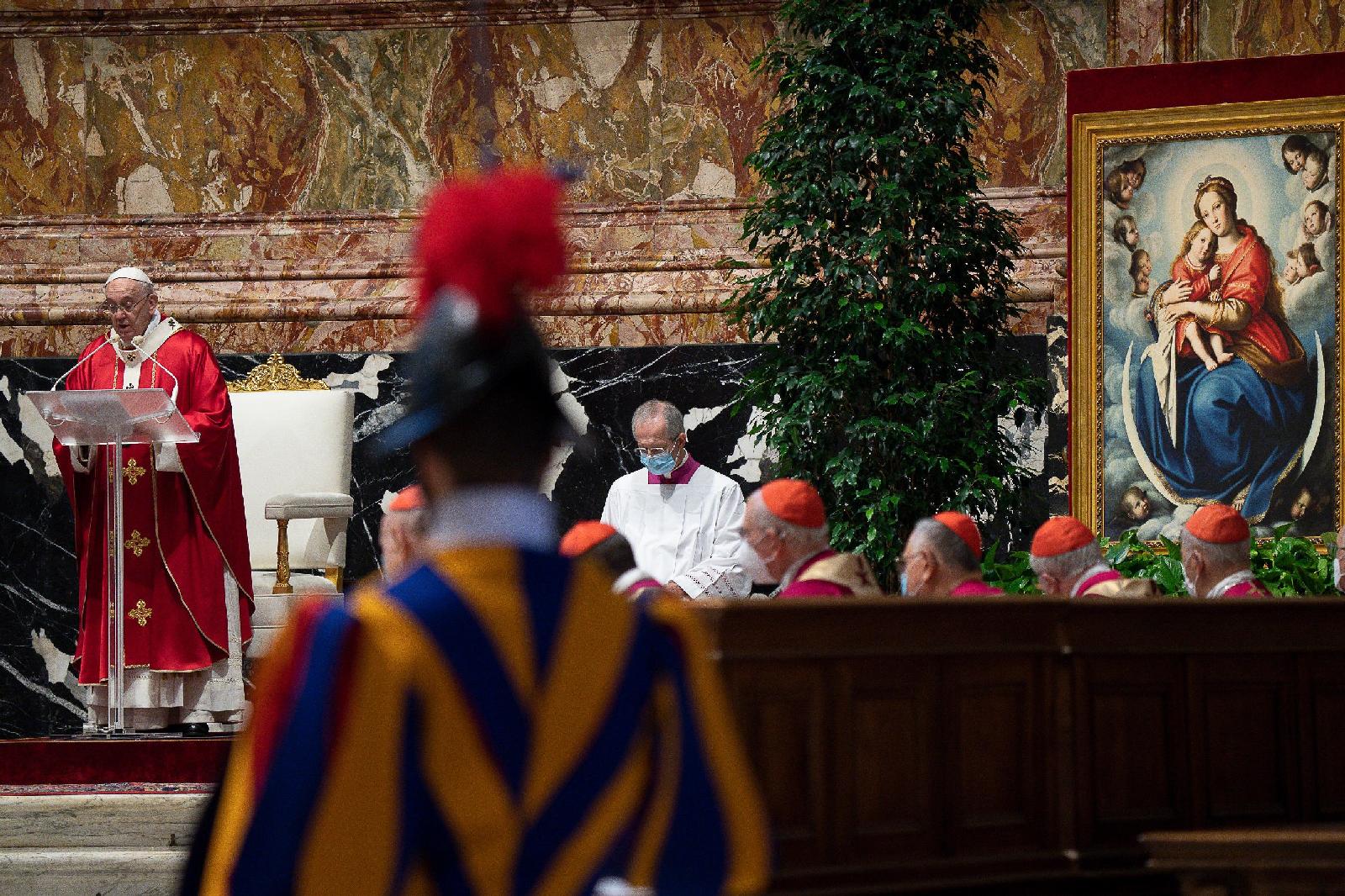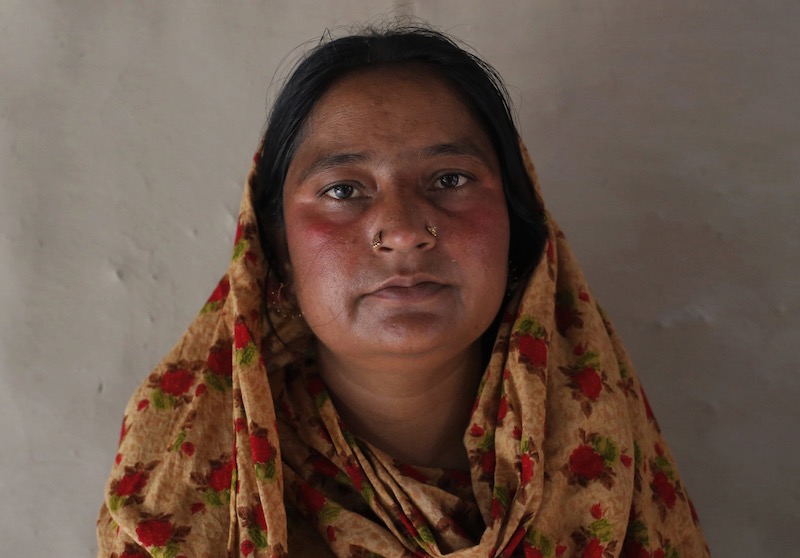In his encyclical, Fratelli Tutti, the Holy Father’s first chapter, Dark Clouds over a Closed World, recognises that “the international community has adopted numerous agreements aimed at ending slavery in all its forms, and has launched various strategies to combat this phenomenon”.
It emphasises the many distortions of our age, such as manipulation and deformation of concepts like democracy, freedom and justice and the issues of selfishness and indifference toward the common good, a wasteful culture, unemployment, racism, poverty and specific global problems, such as slavery, trafficking in persons, women subjugated and forced into abortions and kidnappings for organ trafficking and organ harvesting, killing people for their organs and body parts.
The process of organ harvesting entails the removal of body parts without the consent of the victims. The Pope notes that the human person, the product of the creativity of God, is widely coerced, deceived and deprived of the ultimate gift freedom bestowed on him by the Creator, and sold and enslaved by others – treated as merely a means to an end. He draws the world's attention to a global problem: a “culture of walls” that leads to the proliferation of organised crime, fuelled by fear and loneliness.
In a recent webinar organised by the Africa Region of the Santa Marta Group in September, it was revealed that the activities of organ harvesting in Mozambique have skyrocketed. These activities are largely facilitated by criminal networks in the country. Organised crime in Mozambique is largely connected to deep-seated corruption across the public and government sectors in the country. It was reported by USAID in 2011 that the scale and scope of corruption in the country had reached its tipping point, a situation even then giving real cause for alarm. It was observed that the economy of the country is rocked by corrupt practices, especially the theft of public money.
A government anti-corruption law was welcomed and meant to criminalise the widespread embezzlement of public fund, but the rate of the prosecution has been very low. The effect of wide scale corruption has driven many poor people in Mozambique to seek alternative means to survive. One widely employed means of survival in Mozambique has been the widespread forcible “harvesting” of human organs and body parts from victims. There is a market in the country for organs and body parts driven by traditional magic and cultural beliefs.
These beliefs hold that certain human organs and body parts, when used in treatments by traditional “healers”, provide luck, wealth and cure diseases. Mozambique's dire socio-political situation has driven people toward healers who make a living out of these practices. There is a very strong cultural belief embedded in Mozambican society that these healers have supernatural power and possess the ability to make individuals rich by performing rituals with human organs and body parts. The scale of poverty and corruption in Mozambique allied to these strong cultural beliefs and practices appears to be a driving force behind a growing crisis of forced body part harvesting for the performance of “get rich” or “good luck” sacrifice rituals.
The numbers who believe in these rituals and pay for body parts to be used for it have grown strongly and this belief is justifying the murders of human beings at large scale, rarely with proper investigation or prosecution. Organ and body part harvesting is a well organised criminal activity and leaves little evidence for investigators to follow, and with years of governmental corruption undermining police and judicial processes there are few successful prosecutions.
The harvesting of human organs in Mozambique is a crime with severe penalties. The Catholic Church’s Commission for Migrants, Refugees and Displaced People has established, through working with the media and other institutions involved in preventing body part harvesting, that there is no consent from the victims. Victims are often migrants coming in from South Africa, a disfavoured class, and the poor from Mozambique.
There are three possible grisly scenarios in the process of extracting organs or parts of the human body. The first is that traffickers first murder the victim to extract their organs; the second is that the victim dies during the extraction, and the third that the organs are extracted, and the victims may survive. The organs are extracted using knives and kept in buckets or even in bags, and the crime is carried out where the victim is isolated, distant and from family. The organs and parts of the human body are not removed in hospitals.
There is no legal market for the sale of the human organs harvested in Mozambique. The information shows that in addition to growing numbers of ritualistic get rich or good luck sacrifice ceremonies in Mozambique which make use of body parts, other countries in the region, South Africa and Malawi, in particular, have become main destinations for trafficked organs en-route for further illegal transport for transplantation purposes in richer countries which often ban organ transplantation, hence in these countries, there is also no legal market for organ sale or commercialisation. No structure supports organ harvesting in Mozambique. Trafficking in organs and parts of the human body involves extremely dangerous national and international criminal networks connected to Mozambique which treat humans as a disposable commodity for trade.
The measures adopted by the government of Mozambique are noted in the legal context with the approval in 2008 of the law to combat trafficking in persons known as law 06/2008 of 09. In 2015 it was approved in the New Penal Code, wherein its article 161 it criminalises the possession, transport, and trafficking of human organs. Both laws have articles that protect victims, witnesses, and whistleblowers from this crime. Currently, the National Plan for the Prevention and Combat of Trafficking in Persons is awaiting approval, an instrument that could solidify cooperation between the different actors (organisations) involved in combating and eradicating this crime.
To combat trafficking in people, organs, and parts of the human body, the Church's commission, with the support of its partners, has carried out a series of activities since 2014 aiming at raising awareness of the danger of organ harvesting, such as:
- Organise public lectures at the Teacher Training Centres in the Dioceses of Southern Mozambique to train future teachers in matters of prevention and combat trafficking in people, organs and parts of the human body to be disseminators of this information during the exercise of their teaching duties.
- Hosted lectures in Dioceses and Primary and Secondary Schools in the South and North of Mozambique, to prevent and combat the phenomenon of trafficking for organ harvesting. The results of this action include the creation of focus groups in schools (composed of students, teachers, principals, and members of the school board), responsible for the dissemination of information at various levels: family, school, and community.
- Organise regional seminars on trafficking in persons, organs, and parts of the human body. This involves the Bishops from the Episcopal Conferences of Mozambique and South Africa and the Provincial Commanders of the Police of the Republic of Mozambique and various institutions between governmental and non-governmental organizations. The aim is to intensify cooperation between the Police of the Republic of Mozambique and the Catholic Church at the level of the Region in the context of reprimanding those involved in the harvesting of human organs for trafficking.
- The commissioning of research on the topic of trafficking in people, organs and parts of the human body in the South and North of Mozambique to deepen and expand knowledge about the phenomenon, enabling the adoption of preventive and combat measures in the regions covered.
- Distribution at all levels (community, school, and family) of awareness material translated into some of the most widely spoken local languages to disseminate information to prevent and combat the phenomenon of trafficking.
Victims of organ harvesting are traumatised by their experiences, assuming that they survive at all. They are people already suffering marked social exclusion. The commission collaborates with governmental and non-governmental institutions related to the protection of children, Human Rights and Justice to guarantee monitoring and support of victims. It offers victims psychological and material assistance, carrying out home visits and maintaining contact with the victims' families. This process aims at better reintegration of victims into communities and their resocialisation.
The Holy Father, Pope Francis, an advocate for the poor, once again reaffirms his commitment against globalized indifference. Fratelli Tutti, therefore, echoes the commission's strong appeal to the international community to join in the fight against organ harvesting in Mozambique, to provide the opportunity for poor people Mozambicans and immigrants to live safer and better lives, and helping the government to intensify their process of prosecuting those involved in the corrupt practices that have infiltrated around the country and facilitate the process of the prosecution of the perpetrators of the crime of organ harvesting.
There is also a great need to revisit the concept of religion and ritual in connection with the economy and a process or practice of getting quick money. It is barbaric to sacrifice the parts of a human being under the delusion of quick money. The Santa Marta Group and the commission will continue to collaborate with the law enforcement agencies to combat the evil of organ harvesting in Mozambique and call on the government in Mozambique and the international community to address the issue of corruption in the country and come to the aid of the vulnerable and the poor.
Rev Fr Mark Odion, MSP, of the Santa Marta Group



 Loading ...
Loading ...
What do you think?
You can post as a subscriber user ...
User comments (0)